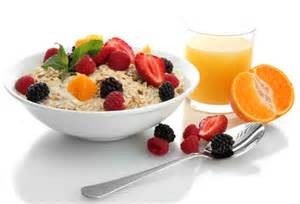As many of us begin to wind down and get ready for the weekend, remember to prepare for a positive and energetic start to next week. That is because next week (between 14-20th March), it is National Nutrition & Hydration Week. The week is a global initiative aimed at promoting healthier nutrition and hydration habits.
Whilst it is important that employees are educated with good nutrition and hydration practices, today’s blog puts a different spin on the subject of nutrition and hydration; this is because what we eat and drink affects our mental wellbeing. At Healthy Performance, the demand for stress and resilience training is at an all time high and so, we feel this is a great opportunity to highlight the relationship between food, drink and mental health.
There are several reasons why what we eat affects our mental health, including fluctuations in blood sugar levels, influencing our mood and energy levels; and the low consumption of vitamins, mineral and fatty acids, for example there are links between vitamin B deficiencies and schizophrenia, lack of zinc and eating disorders, and low levels of omega-3 oils and its impact on depressive symptoms.
The relationship is complex because when we are stressed we desire high fat and sugar foods and caffeine and alcohol, all of which compound the stress. And eating these foods increase the likelihood of stress because our bodies will not be at optimum defence. Furthermore, during stressful periods, we often feel like we haven’t the time or motivation to prepare healthy meals, and will often opt for fast food, which inevitably contain lots of fat and/or be high in sugar.
The following are common food and drink products which impact upon stress:
Caffeine encourages the body to release adrenalin and cortisone, which are already heightened during stressful periods. In addition, the stress response will be greater if you already have heightened adrenalin circulating through your bloodstream. If you feel you need excess caffeine to overcome tiredness, it is probably time you allowed your body to rest, rather than mask the fatigue.
With already increased glucose in the blood stream during periods of stress, the consumption of sugar accentuates this response making the pancreas work even harder. Sugar can also result in mood highs and lows which can lead to feelings of aggression, anxiety, confusion, depression, fatigue and irritability
In moderation and of the right type e.g. Omega 3, fats are essential to the body and reduce the symptoms of depression. However, during periods of stress, we often crave foods which are high in saturated fats e.g. chocolate, biscuits, due to the cortisol which is produced as part of the stress response, which further increase risks to health.
When consumed in moderation, alcohol has a relaxing effect on the body. However, regular heavy drinking interferes with neurotransmitters in our brains that are needed for positive mental health. This in turn can contribute to feelings of depression and anxiety and make stress harder to deal with. It will also make the body release large amounts of adrenaline and can result in feelings of nervousness, anxiety and reduce the quality of your sleep.
Here are some HP top tips to eat your way to a healthy stress level:
- Try to eat low fat and low sugar foods on a regular basis to maintain blood sugar levels
- Don’t skip meals and make sure you have healthy snacks to top up on if you’re energy levels are dipping.
- Dehydration can affect how you feel physically and mentally, so make sure you stay hydrated by aiming for 1-2 litres of water a day.
- Keep a food diary for a week to see how different foods affect your mood and stress levels. Record how you feel emotionally and physically after each meal.
Promoting healthier lifestyle choices, through food swaps and simple hydration steps to ensure your employees are staying on top of their game might seem like small things but, they can have a great impact on the performance and energy of your workforce! For more information on Nutrition, Hydrationa and Stress and, for National Nutrition and Hydration Week, please visit:
http://www.stress.org.uk/Diet-and-nutrition.aspx
http://www.mind.org.uk/media/7498/mind-guide-to-food-and-mood-2010.pdf
http://nutritionandhydrationweek.co.uk
http://nutritionandhydrationweek.co.uk/worldwide-afternoon-tea












